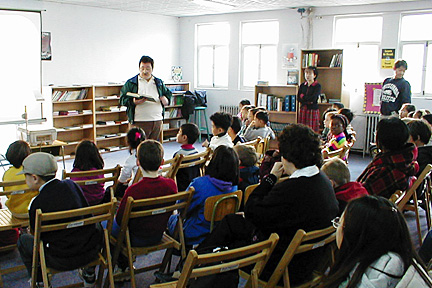
|
On Faith
|
Christians can find
receptivity in China
|
To get the most out of a journey in China, it is important to try to understand some of the basics in the new Land of the Dragon. In its relations with the West, the Chinese emphasis is on Western science and technology, often ignoring the philosophical/religious underpinnings of Western society. The West is equally guilty of underestimating the Chinese way of thinking.
Just as Americans tend to mistrust communism, the Chinese tend to mistrust Christianity and Western religion. The Taipei Rebellion is a good example from the past to understand the mistrust. The leader, Hong Xiuquan, became delusional while sick, thought he was Jesus' relative and started killing millions of people. This is a very short synopsis, but it gives an idea why China might mistrust those coming in Jesus' name, even today. Words like "imperialism" are inextricably bound up with Christianity in the Chinese psyche, based upon real events in the past and aided by repetition over time.
To embrace China is to experience its religious and cultural diversity. There are 56 official minority cultures in China, each with a distinct tradition and language. A traveler may also enjoy the diverse religious traditions China has to offer, whether Taoist, Buddhist, Confucian or Chinese Christian.
Christianity could learn from the unending adaptability of Chinese Buddhism as it integrated into, and transformed, Confucianism and Taoism.

The Rev. Don Eads conducts chapel at the International Academy of Beijing.
To begin to understand China is to embrace the chop-suey nature of Chinese culture. It is perfectly OK in China to believe simultaneously in Buddhism, Taoism and Confucianism, using whatever elements of each philosophy one needs at the time. This is double insurance that everything will be OK.
So for the average Chinese, to accept Jesus means adding one more form of triple insurance. This kind of thinking is often misinterpreted in the West as illogical, when it might actually be supra-logical. Christians, of course, have no other form of insurance except Jesus.
New intertwined forms of Confucianism have emerged in places like Boston, demonstrating that Confucianism is quite compatible with Christianity and American society. This could prove useful if America is to compete effectively with the values of China today.
When you come to Beijing, I invite you to our home church, Beijing International Christian Fellowship. It has grown from a small group in the 1980s to a congregation of at least 5,000 people from 96 countries. We have two churches now, with different languages used at services with translations. A typical service is attended by 700 to 1,000 people.
Look me up when you come to Beijing. Zaijian!
![]()
E-mail to Features Desk
[News] [Business] [Features] [Sports] [Editorial] [Do It Electric!]
[Classified Ads] [Search] [Subscribe] [Info] [Letter to Editor]
[Feedback]
